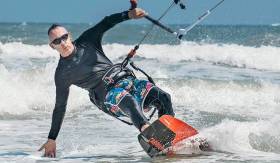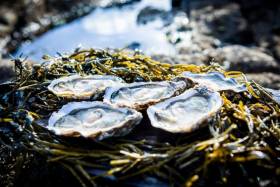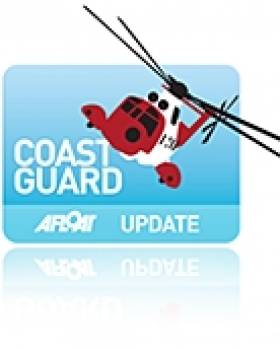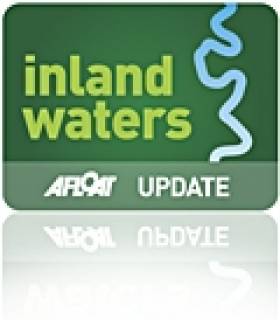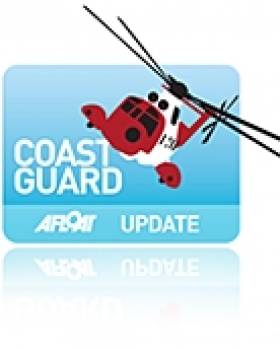Displaying items by tag: Louth
The search for a fisherman missing after a small fishing vessel with two on board sank off the coast of Co Louth on Tuesday morning (12 December) has been called off for the night.
RTÉ News reports that a second fisherman was rescued after the incident north of Dunany Point in Dundalk Bay, and is being treated at Our Lady of Lourdes Hospital in Drogheda.
A multi-agency search and rescue operation was launched following at Mayday call at 8.45am from the fishermen’s vessel, with lifeboat and coastguard teams from Clogherhead and Greenore joining the Dublin-based Irish Coast Guard helicopter Rescue 116 at the scene.
Clogherhead RNLI says the search will resume on Wednesday morning (13 December), adding: “We are thinking of the family of the fisherman at this difficult time.”
Tributes To Louth Man Who Died In Thailand Kitesurfing Accident
#Kitesurfing - Tributes have been paid to the Irishman who died in a kitesurfing accident in Thailand last week.
Jonathan Wogan, 43 and originally from Co Louth, was a keen kitesurfer and a regular on the waves near his home in Hua Hin, Thailand where he lived with his wife Zulee and daughter Mia.
Local media reported that rescuers attempted to resuscitate Wogan after pulling him from the sea after the incident around noon local time (7pm Irish time) on Wednesday 20 December.
Carlingford Oyster Festival Opens Today
#MaritimeFestivals - The 2016 Carlingford Oyster Festival kicks off this evening (Thursday 4 August) on the shores of Carlingford Lough with the official opening of the event that runs till Monday 8 August.
This Saturday (6 August) is when the festivities really under way, with local restaurants offering samples of their finest seafood dishes.
Visitors will have an opportunity to try some of the Co Louth town's renowned local oysters at the Festival Oyster Tent.
There will also be guided tours of what's one of Ireland's few remaining Medieval walled towns, to coincide with Irish Walled Towns Day on Sunday 7 August.
Howth Coast Guard Assists Powerless Boat In Drogheda
#Coastguard - The Howth unit of the the Irish Coast Guard responded this weekend to a vessel that lost power at the mouth of the River Boyne.
Howth's coastguard crew were undertaking helm training with a passage to the Drogheda unit to support the Drogheda Marina launch when they were notified that a ski-boat planning to join the flotilla had lost power on the Drogheda Bar.
The vessel, with four people aboard, was taken under tow - while a mother and child on a second vessel suffering from serious sea-sickness were also transferred to the coastguard boat.
As previously reported on Afloat.ie, the Drogheda Port Company undertook dredging works in January this year on the entrance to the port on the River Boyle, following earlier works in 2010 to remove sand accumulating at Drogheda Bar.
Shillington's Quay in Portadown Set for Revamp
Shillington's Quay in Portadown is set for redevelopment thanks to a significant grant from the European Union.
The Portadown Times reports that half of the borough's £200,000 (€230,000) funding will be used for a new floating jetty and environmental improvements for the Newry Canal quay area, which was last used as a working port in the 1930s.
A total of £2.5 million (€2.9 million) has been earmarked by the EU for promoting tourism in the cross-border East Border Region, which aside from six Northern Ireland council areas also includes the Irish counties of Louth, Meath and Monaghan.
Other improvements to marine and waterway facilities include a £125,000 (€145,000) investment for the Eisenhower Pier in Bangor, on the southern side of Belfast Lough.
The Portadown Times has more on the story HERE.
False Alarm for Kitesurfer 'Pulled Out to Sea'
A number of local Search and Rescue Units were involved in the search for a Kite Surfer who was seen being pulled out to sea approximately 3 miles off Balaggan Point, Co Louth yesterday, according to SAR Ireland.
Full CH 67 Comms below.
Kilkeel, Greenore and later Clogher Head lifeboats were all involved along with a passing yacht as they raced in pursuit of what was thought to be an out of control Kite Surfer as he was spotted being pulled out across Dundalk Bay.
Clogher Head lifeboat eventually managed to catch up with the surfer who it turned out was being towed by a jetski, had a VHF handheld and was in no danger whatsoever.
All units were stood down and told to return to base.
Both Belfast and Dublin CG Co-ordinated at different intervals of this search.


























